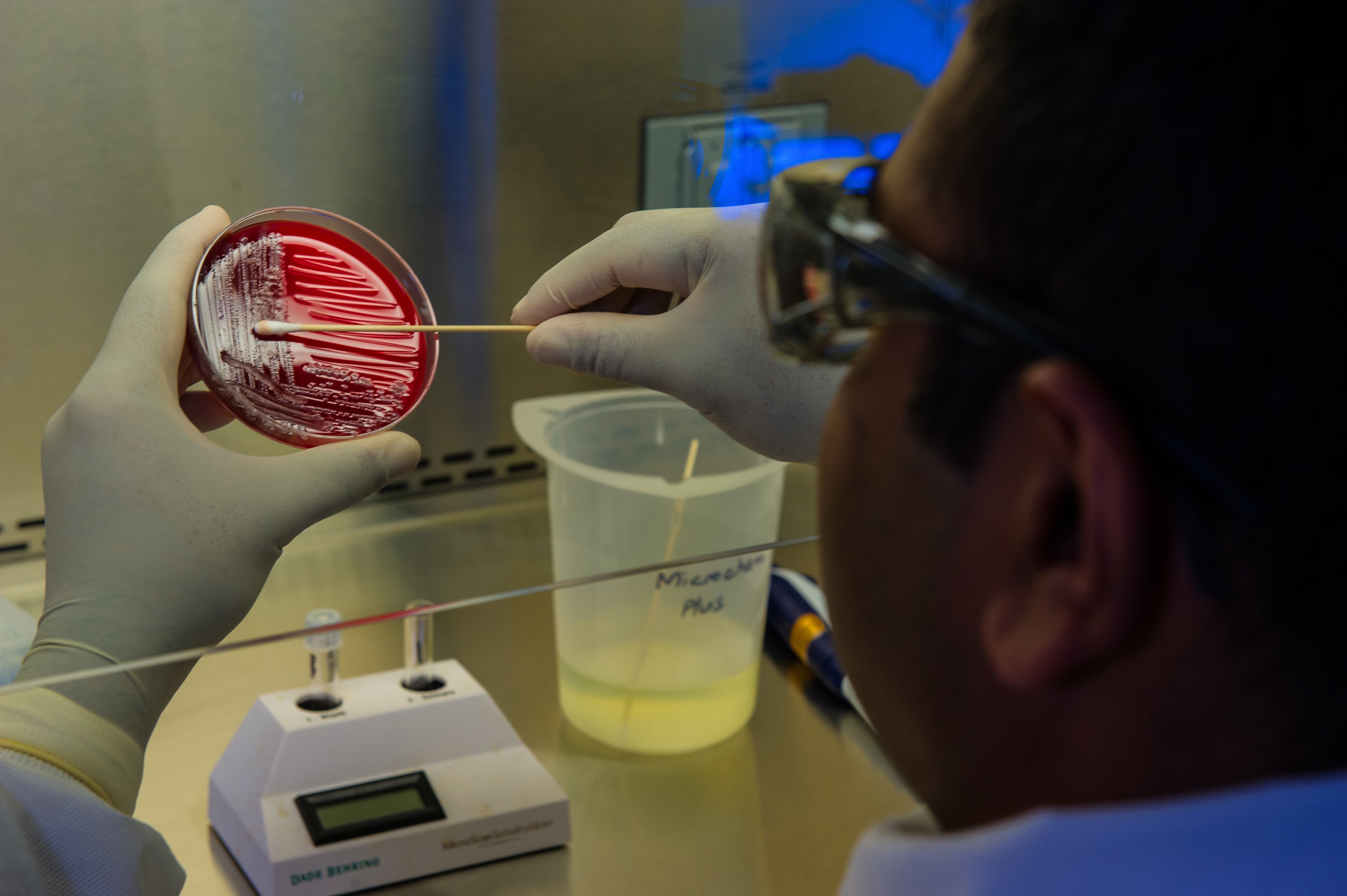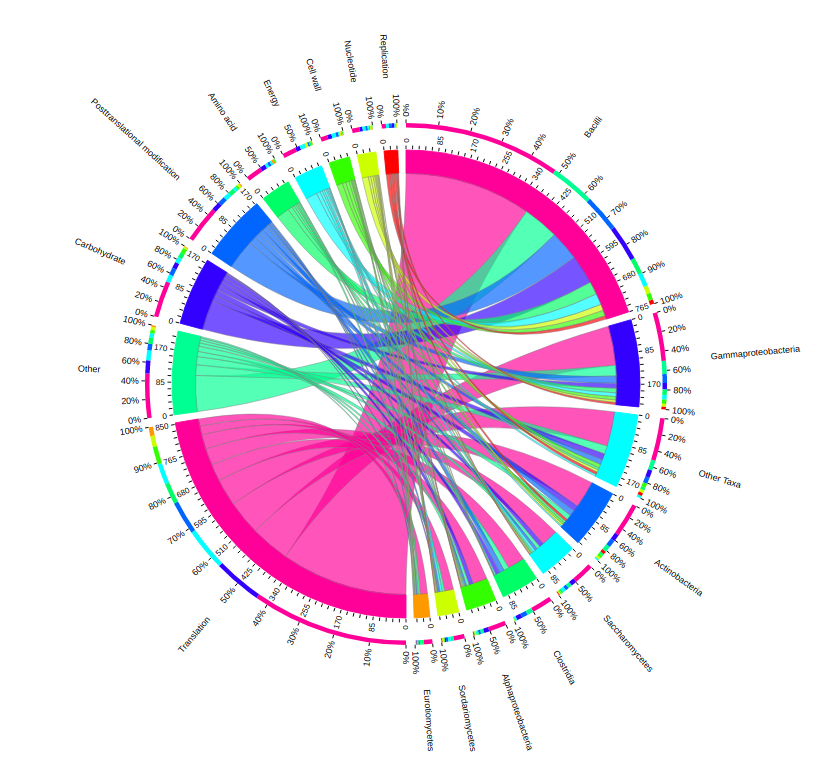
Arising from an informal collaboration between Computer Science and Microbiology in 2018, new and exciting insights are emerging across a range of problem areas. Dr Enda Howley from the School of Computer Science, and Dr. Florence Abram first spoke about working together and identified an opportunity via a master’s thesis student in Data Analytics.
The outcome of that collaboration resulted in Kevin McDonnell designing a new software tool called Chordomics as part of his master’s thesis which allows Dr. Abram and other researchers in microbiology to present their data in a far more intuitive and automated manner.
The application transformed what was previously a hugely manual and frustrating process that was immensely time-consuming and caused a number of issues in clearly articulating experimental results in research papers.

The group has since moved on to the next exciting project, namely protein identification. Proteins are large molecules created by cells to perform functions and are essential to all life on earth. However, the commercial tools available to researchers such as Dr Abram to identify proteins are outdated and only extract information from a tiny fraction of the data. It is common in protein analysis that as little as 2% of the data is utilised. The collaboration therefore moved toward developing its own protein identification algorithms to replace those currently available.
The trio are exploring the use of machine learning in determining the collection of proteins present in data collected from environmental samples. These samples are complex mixtures of many different organisms and can include food waste, soil and even the human gut. With lots of data available for training, the group is using artificial neural networks due to their exceptional pattern recognition capabilities. More specifically they are using graph neural networks which are also able to incorporate the inherent structure of the data into the models, providing even more powerful results.
The impact of this research is two-fold. Advancements in protein identification will be of huge benefit to microbiologists like Dr Abram, who will garner greater penetration into their data in future. However, data from thousands of previous experiments are archived and are therefore available for re-evaluation using these improved approaches. Improvements in protein identification algorithms may reveal new and exciting insights from many previous studies. While many of these studies have made significant impacts, they have been significantly curtailed due to the limited exploitation of the data. This collaboration offers many new opportunities for all involved as the intersection of AI and microbiology proves so fruitful. The potential for re-examining some existing studies with these AI techniques has the scope to bring significant opportunities for new collaborations to NUI Galway, while also maximising the insights from normally expensive and time-consuming lab experimentation.
The collaboration has most recently resulted in further plans to extend the same research agenda in the study of cancer detection using the human microbiome and its links to thyroid cancer.
The trio are confident about the scope for many more opportunities for the future, and very keen to expand the team with more PhD students and PostDoctoral research. The abundance of validated microbial data that can be easily re-examined offers many low-hanging fruit for the team and an abundance of collaborative links for the future.
Kevin McDonnell, PhD student in the School of Computer Science said this was a project “that brought me from being a regular Master’s in Data Analytics student who came to NUI Galway with a curiosity for science and data to now completing a PhD in this niche area”. For Kevin, this is now a daily obsession for new scientific impacts arising from the application of machine learning techniques such as artificial neural networks and random forests, to microbial data.
Kevin concludes “that many people are scared or intimidated by the impacts of AI on the world, mostly due to how difficult it is for many to understand how AI techniques work. But here is a simple example of where AI can be used to make major advancements in science much easier to achieve and more accurate for the benefit of all.”
Profiles
Kevin McDonnell is a PhD student in the School of Computer Science in NUI Galway, working under the supervision of Dr Enda Howley and Dr Florence Abram. His research is funded through the Irish Research Council and formerly through the Hardiman Scholarship. He previously completed a BSc. in Physics (Theoretical) and an MSc. in Data Analytics with NUI Galway.